This was a presentation the other day on basic skills to survive in today’s digital jungle. The summary description is below but it feels kind of pompous when I read it now. I will likely revise it in some way in the near future. I do like the core idea that there’s a lot of change and lot of distraction in a digital environment and you might have to think in particular ways and do particular things if you’re going to do well in that world. 1 I feel I’ve got a decent idea what those key concepts/tips are after working with a large number of people across a number of organizations and disciplines over nearly 20 years.
The confluence of distraction and rapid change in today’s digital environment can result in confusion and frustration. We’ll focus on limiting distraction and choosing tools and workflows that will help you do more with less effort. The foundation will be a quick overview of digital productivity patterns (pomodoro, GTD, etc.). From there, we’ll move into successful patterns for getting work done in key workplace applications.
For my own amusement, I opted to use actual survival manual advice with a specific focus on the US Army’s Survival Manual to frame the conversation.
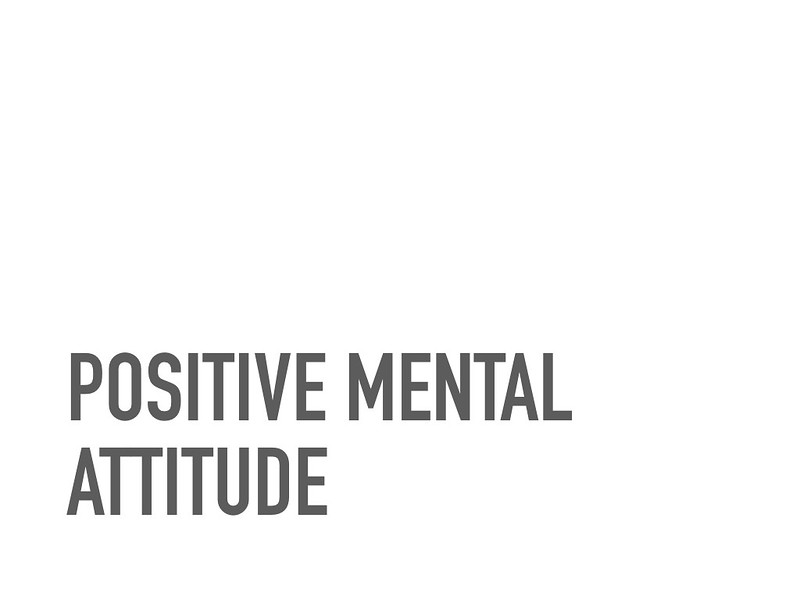
The idea that you can’t control everything and there’s no use bemoaning the event that got you in the survival situation is something I saw repeatedly. The same is true here. If you can’t opt out of the digital stuff there’s no point in complaining about that aspect. We’re also going to avoid focusing on institutional elements we can’t control. We’re going to focus on what we can control and we’ll keep an eye out for how we might end up complicit in creating the very things we dislike. While the digital-ness is part of what we need to analyze there’s also a large chunk of human choice and culture that is often more important. There are ways to improve your situation. We will find them.
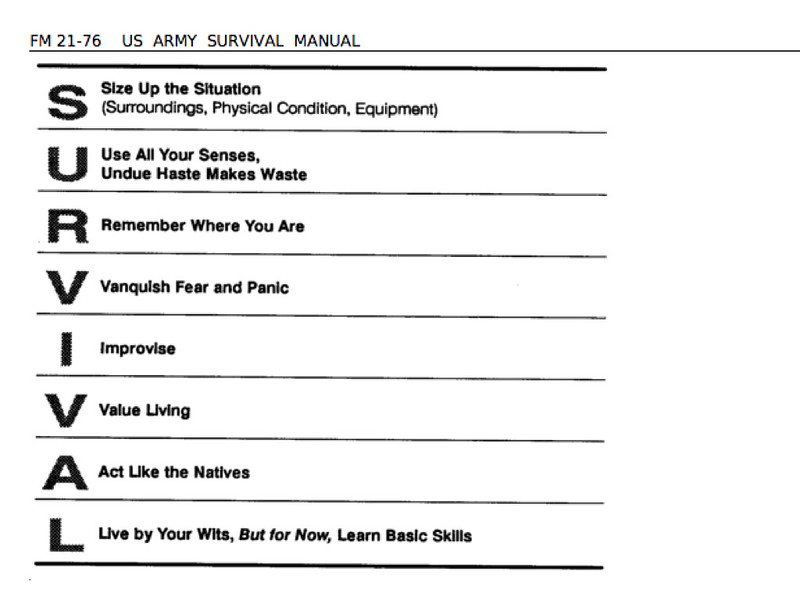
The Army Survival Manual uses SURVIVAL as a mnemonic device to help people think about key aspects of not dying in a survival situation. We’re going to do the same with some minor changes.
Size up the situation
It’s easy to think you know how you work now. It’s easy to say something like “I spend all my time on email.” There is some value in those gut feelings but there’s also value in looking at the data around how you spend your time. It could be that you’re in email for a much lower amount of time but you’re in there so frequently that it constantly interrupts your other work. Take stock of where you’re actually spending your time. One advantage of a digital environment is that there are tools that will help you do this.
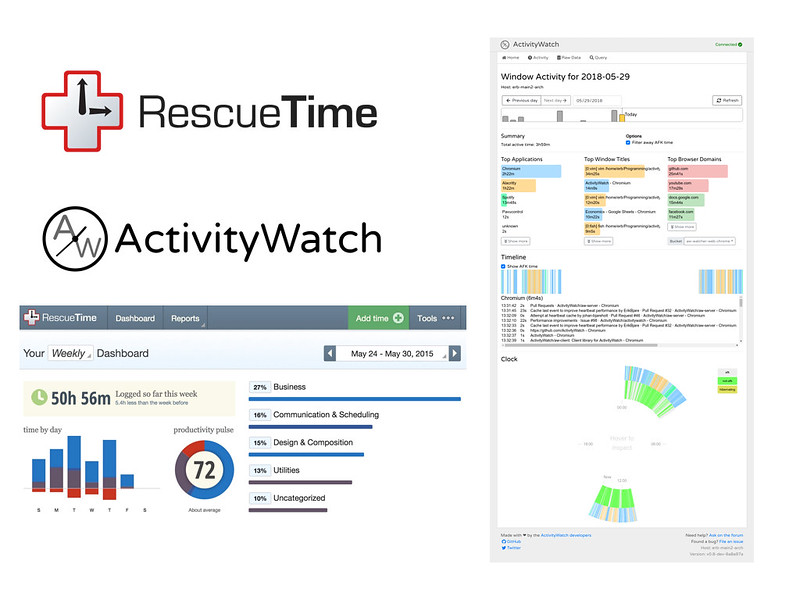
Rescue Time and Activity Watch are two tools that help you gather the data necessary to really see how you’re spending time on your computer. Rescue Time is a freemium product so it’s easy to get started but I’d only go that route if you think you would actually pay for it in the long run. Activity Watch is open source and free but will require more effort to setup etc. on your part.
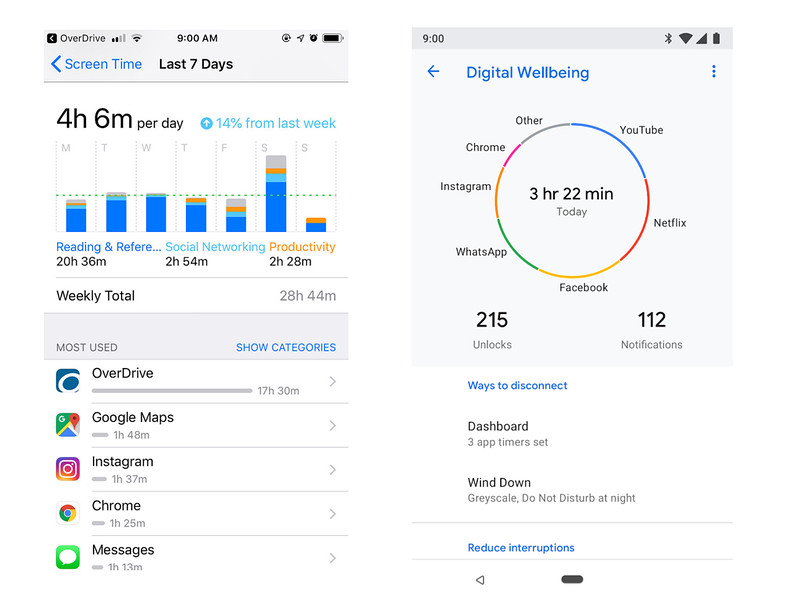
In today’s phone-centric world, it may also be worth seeing how you’re using your phone. Apple has built in this tracking on the newer iOS versions and Android has a “digital wellbeing” app that gives similar data.
You can see my actual data in the graph on the left. It’s pretty apparent that I mainly use my phone to read books (roughly 2.5 hrs a day). That’s kind of weird but true. I don’t know if it’s good or not but I have some data to think about. As an aside, I use the OverDrive app because it integrates with our library and allows me to check out digital books and audio books for free. I find that to be awesome.
Undue haste makes waste
When you opt to dive more deeply into this take your time. Leave stuff alone that seems to mostly work. Focus on areas where you have the most to gain (emotional energy as well as time). Don’t take on new tools, processes etc. without thinking things through. If you have an option, don’t throw good time/energy after bad and keep using a tool that punishes you.
Beware freemium products as they are entirely designed to make you want to upgrade. If that price is too high or you’re philosophically opposed to paying for the product then it’s probably best to look elsewhere. There are exceptions but it’s a nice baseline consideration. I won’t get into data privacy issues in detail here but that’s also part of the consideration process.
Do you have an exit strategy? Imagine the tool goes away for some reason (closes, updates in a way that is awful, price increases to untenable levels etc.). If that happened, what data do you need out? Is there a way to export your work? What kind of data is that? Are there other tools that let you import it? Are there other ways to edit it? Think through this stuff. Ask someone for help if you need additional knowledge or experience.
Consider that there is no perfect tool and that good tools often take time to learn. Do you have that time? Does your investment of that time give you enough benefit to take on the initial hardship?
Finally, talk to people who seem to have patterns that work or better yet ask to observe them doing something that you struggle with. Often there are shortcuts or patterns that have evolved over time that they might not even be aware of that will be incredibly valuable to you.
Remember where you are
Reorient yourself frequently. Check your data. Check your gut. How do you feel? Does the data match your perceptions? Do these checkins more frequently initially.
Vanquish fear, panic, distractions
I added the distraction part as it’s probably the most deadly of the digital hazards (second only to the deep depression I feel every 4 or 5 months when I log into Facebook). The digital environment is a rabbit’s warren of potential distractions. There are also digital tools that will help fight the other digital things that are built to distract you.
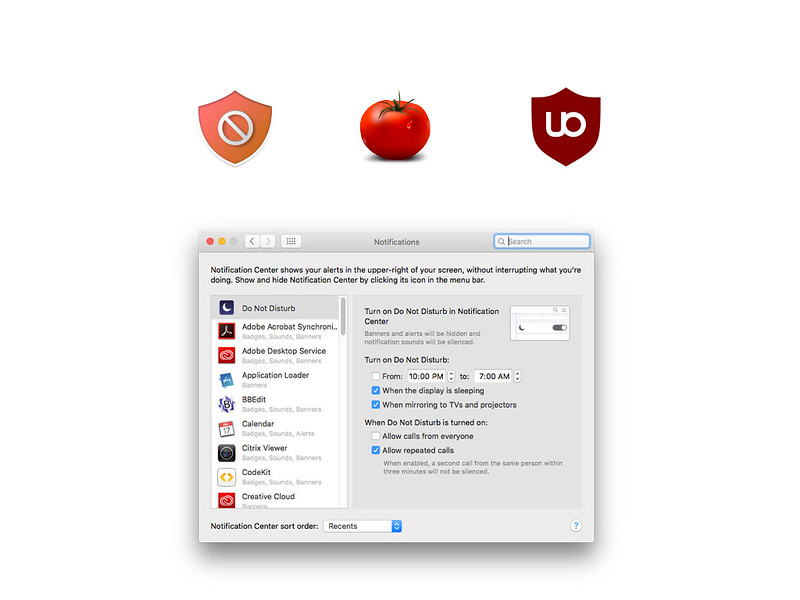
The browser is where I see most distraction occurring (although email can also be a culprit that may or may not be in the browser). Block site is a plugin that will let you block certain URLs so that when your will power fails or your muscle memory kicks in . . . there’s a tool helping you stay on the straight and narrow. Strict workflow is a similar product that also ties into the Pomodoro productivity philosophy which will discuss more later. There’s also uBlock Origin which won’t keep you from going to useless sites but it will speed up your browsing by blocking ads.
You also want to consider what desktop and phone notifications you’re allowing to interrupt you. Turn them off if you need to concentrate. Most people don’t need to be on call at a moment’s notice. Email can sit for an hour. You probably don’t need CNN briefing you regularly. I only allow my calendar to send desktop notifications. The less distractions, the better.
Improvise
Look at all tools and workflows with an open mind. You can use tools for purposes that were not intended by the designer. You can chain things together to do what you want when one tool won’t suffice. If you don’t have a hammer you can use a rock. Stay openminded. Be flexible.
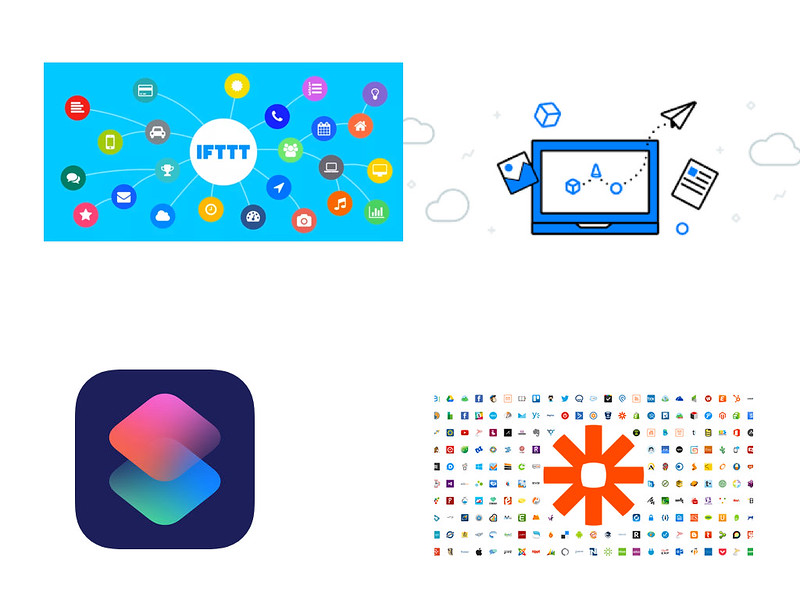
There are tools out there that help you chain other tools together. IFTTT, Zapier, Flow, and other let you create digital Rube Goldberg machines. Do more with less energy.
While you can build social media experiences that depress or distract you, you can also build communities in social media that support your growth and are pleasant. I maintain an RSS reader that helps me learn things. My Twitter account does a fair job of that as well and I fight it’s attempts to manipulate me by blocking out all the numbers. One of the other nice things about these digital tools is that there are usually ways you can alter or augment them if you look around.
Value living
No point in creating a miserable experience for yourself even if it’s “highly productive.” Set up workflows and patterns that energize you and make you happy. If you need help thinking like that check out some of the quantified self happiness people.
Act like the natives
Find people who are thriving in the digital world that are like you. Look for the larger workflows they’re using.
Maybe it’s a group like Prof Hacker. Maybe you want to see people from a spectrum of careers through an interview series like “How I Work.” Maybe you build your own network of interesting people that share resources and reflections. There are ways to see what smart, happy people are doing. Look for them. Take the pieces that make sense for you and make it your own.
Learn basic skills
It’s not infrequent to see that we’ve done a poor job giving people a decent foundation for digital survival. They don’t have the a general philosophy to help them along or a mastery of some key elements of basic tools that might help them. I don’t mean for that to sound quite as pretentious as it does. Here are a few of those concepts that have proven useful over time.
Philosophy
There are some productivity philosophies that can help you fight against some of the negative aspects of digital workload/modern life.
Pomodoro
This is a simple one. Set up a thing to do. Do that thing for 20 minutes without interruption (no email, no social media, etc.) and then take a five minute break. Repeat four times and then take a longer break. Try it. You might see that this is harder than you thought. The technique helps fight the urge to constantly interrupt yourself.
Getting Things Done
Getting Things Done can seem intimidating and those who love it seem to have a cult-like passion about the process. It is well worth checking out despite that. Keep in mind you don’t have to adopt the whole thing. Take pieces that work for you.2 I have taken two aspects to heart. One is that if I have a bunch of stuff to do I need to figure out what elements take less than 2 minutes and just do them. Secondly, don’t keep a ton of stuff that you have to do in your head. Write down your work. Leave your brain for thinking rather than remembering stuff like this. I find it also reduces my stress to see it codified and clear rather than being in my head as a terrifying amorphous blob of STUFF TO DO.
Google Advanced Search
Most people don’t use it. Google took it off the front page. It’s still so very powerful. Use it. See a few examples here.
Don’t create the expectation that you answer email all the time or instantly. It’s email not chat (and if you do this via chat you might reconsider that as well). If you have set this expectation consider working to change it to something more reasonable. You can look at an extreme version of this from Tim Ferris. The concept of checking email only a few times a day makes good sense. Stay engaged in productive work rather than interrupting yourself with every random email. It’s harder to do that it sounds. Dopamine is a powerful drug.
Use the tools of email to make you better and faster at email when you do it. Sort things using rules. Respond to standard things using templates or auto responses. There are many options depending on what you do and how you work. The details vary in different tools but nearly all email clients have ways to do this and it will save you time and hassle.
Take a hard look at what kind of emails you’ve opted into. Are you on newsletters? Do you read them? Is FOMO keeping you subscribed and adding to stress? Set a rule to filter newsletters into a folder. If you haven’t read the last three, even with the best of intentions, unsubscribe. Let it go. You can always opt back in later when time is on your side.
Spreadsheets
I love spreadsheet functions. I use them all the time to manipulate text. If you’re ever doing anything with a table of information, do it in a spreadsheet. You can cut and paste into a Word document when needed while taking full advantage of all the magical things you can do in a spreadsheet that you can’t do in a Word table.
Freestyle
From here we started to address specific needs/scenarios.
1 I also understand opting out of all this and moving to the woods. My great-grandfather was known for stringing barbed wire across his porch to deter visitors. So if that’s an option for you, I wish you good luck with a degree of envy.
2 Jeff stressed this in the workshop and it’s something that is incredibly important.
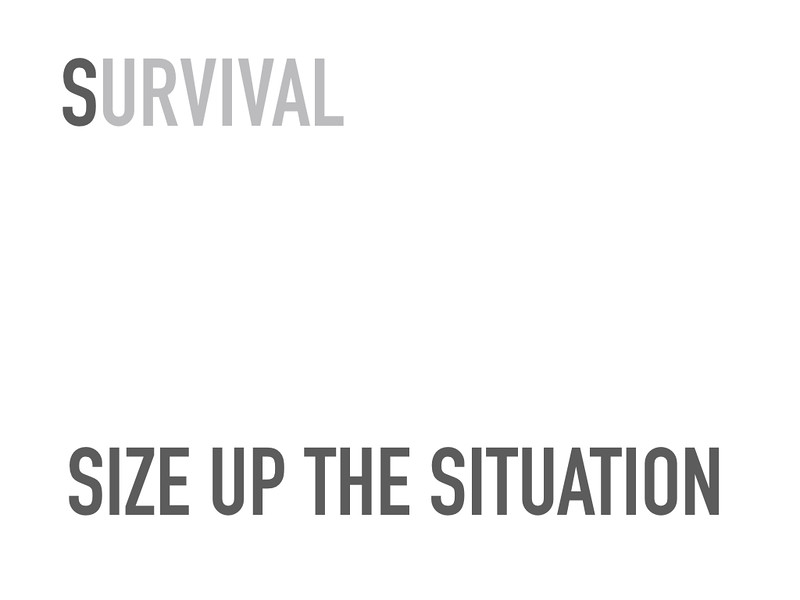
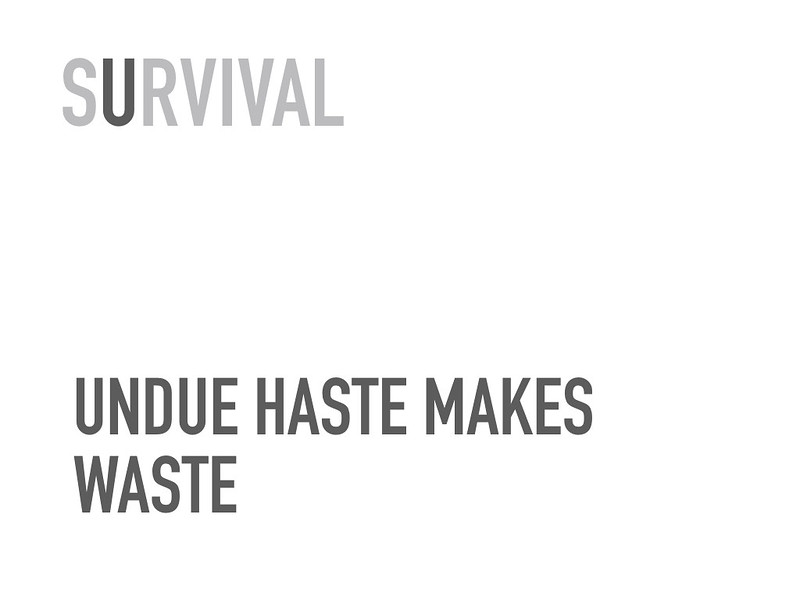
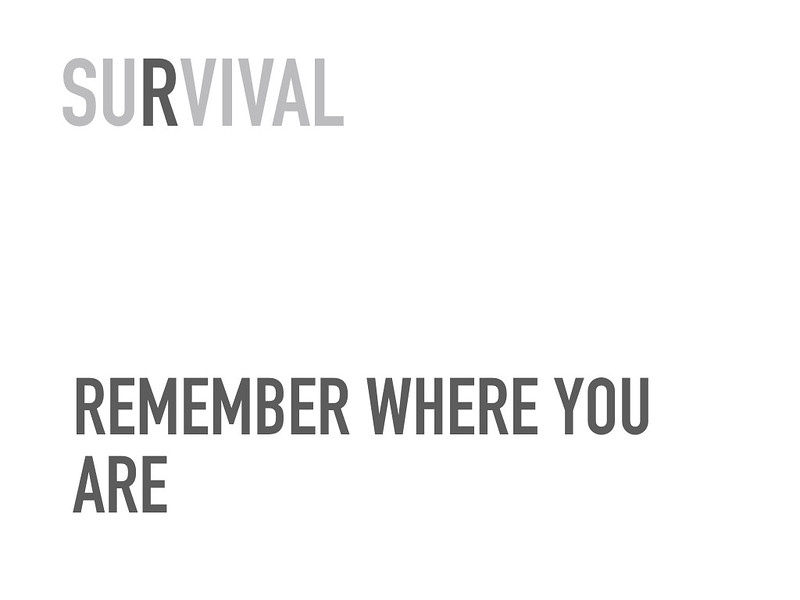
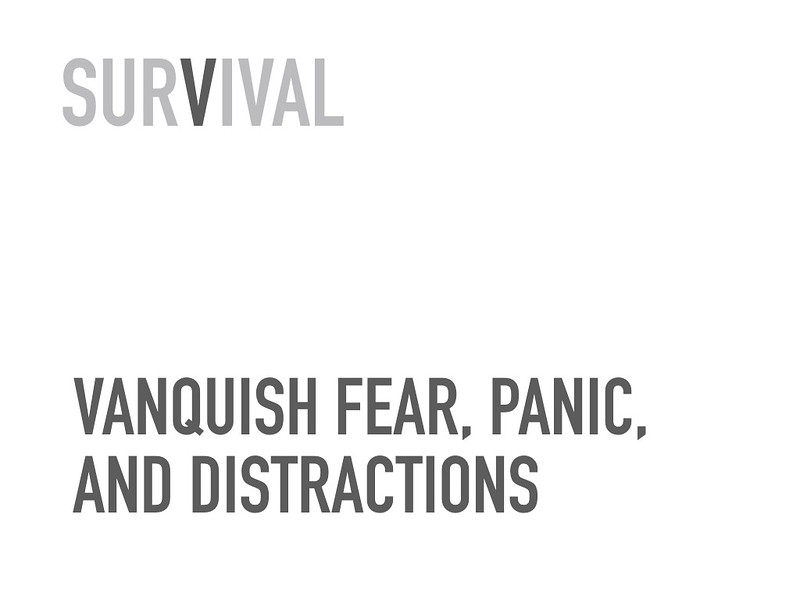
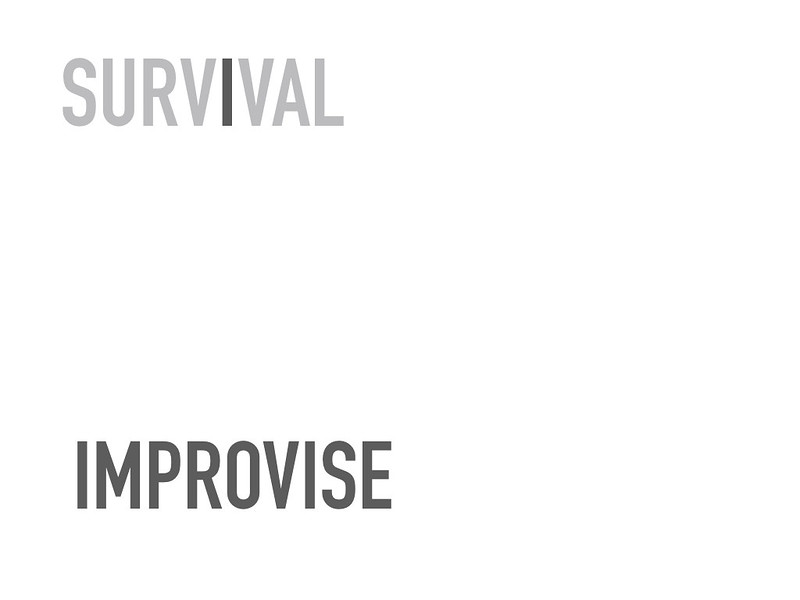
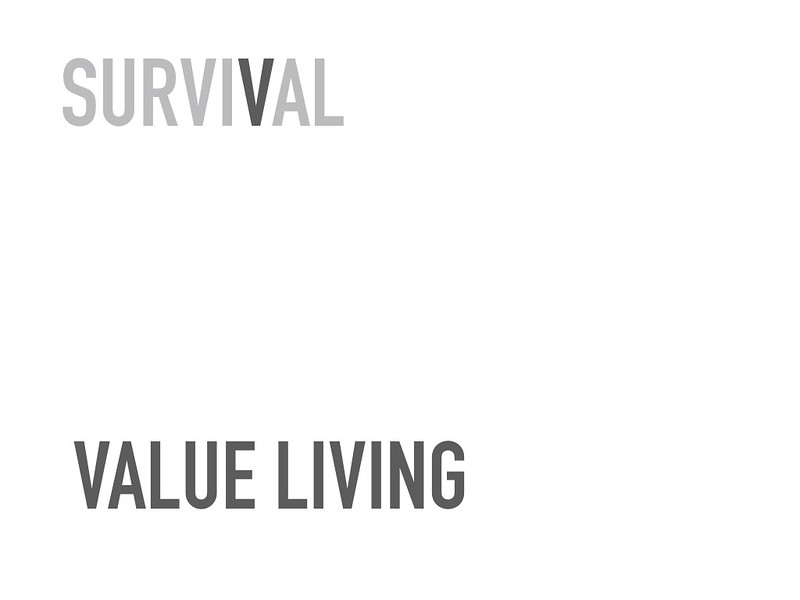
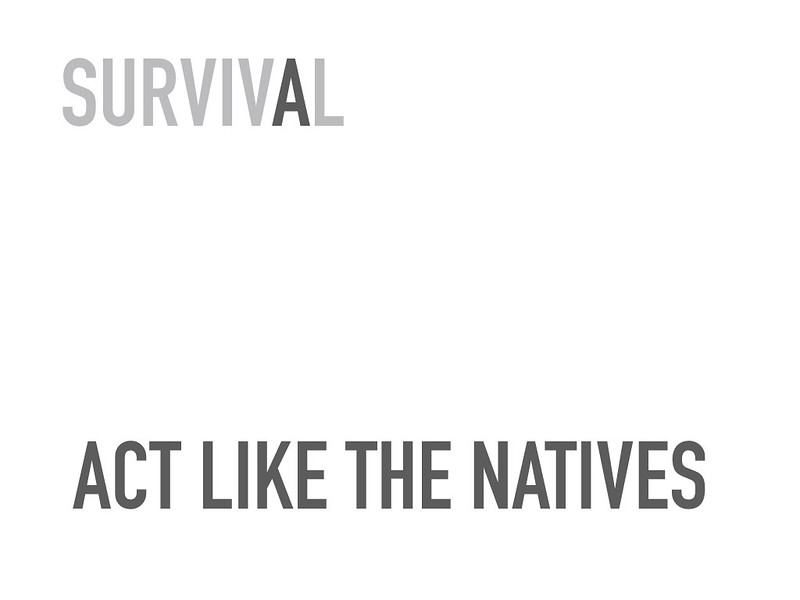

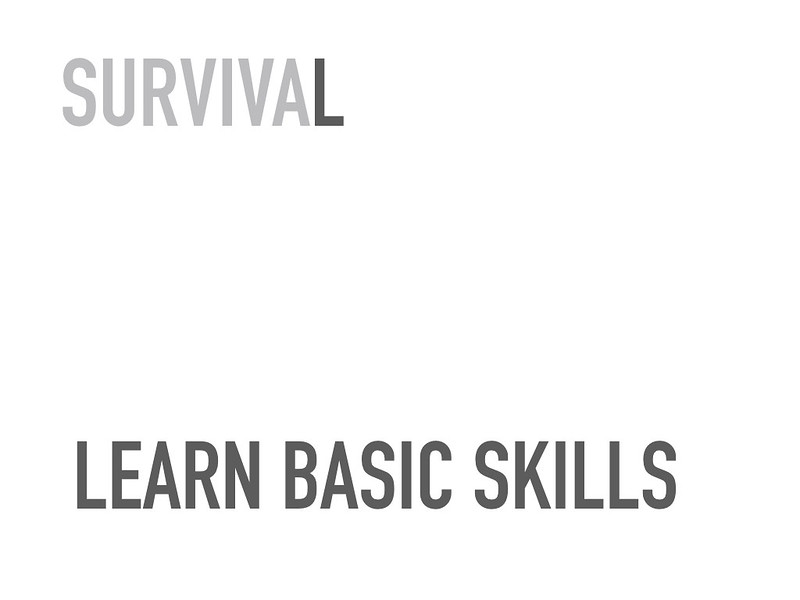
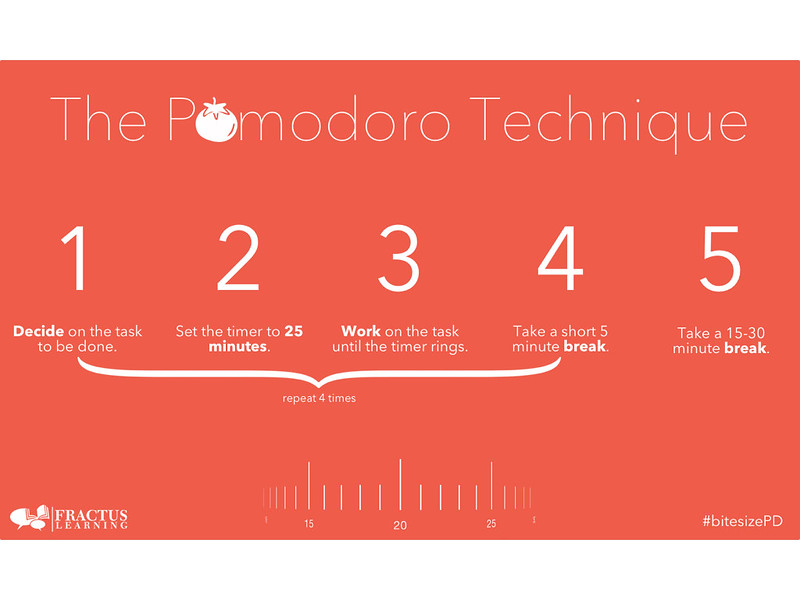
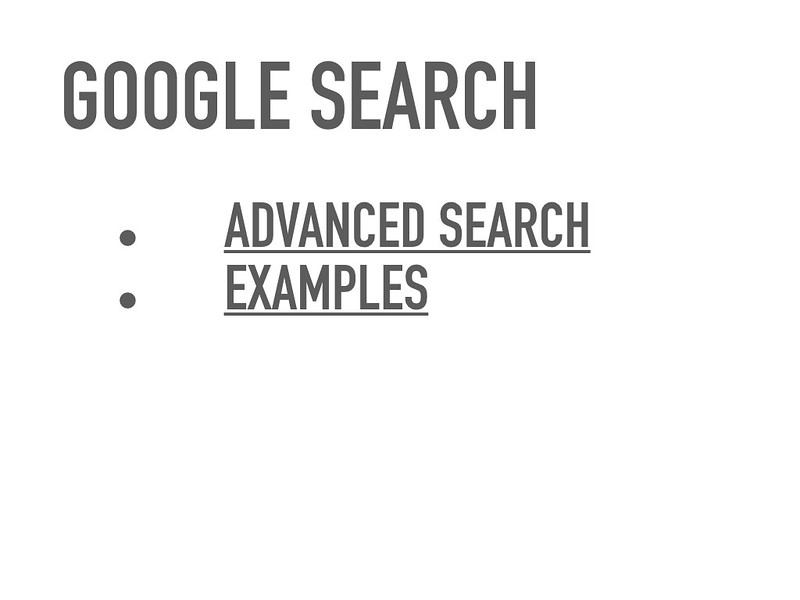
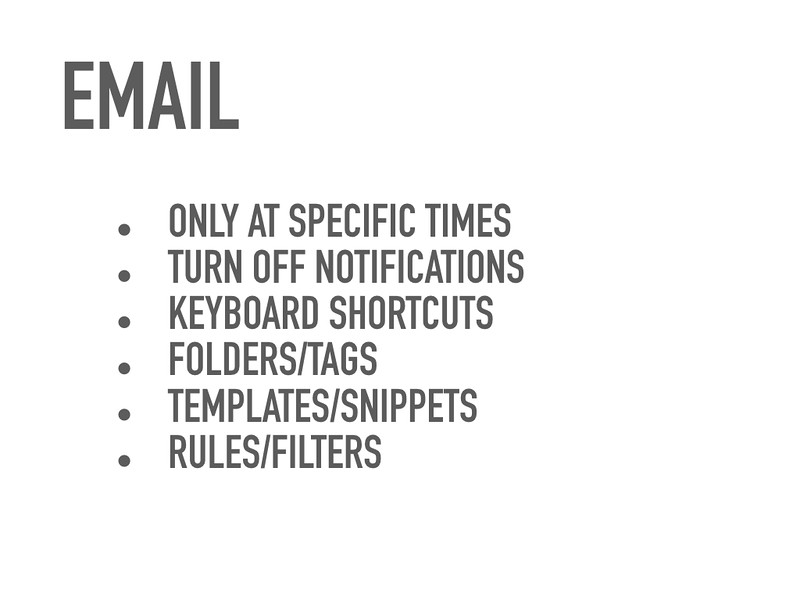
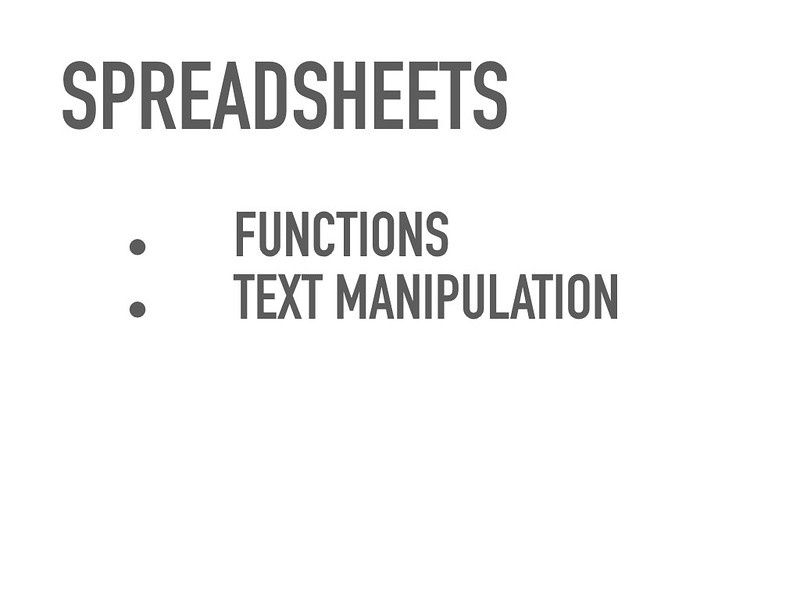
One thought on “Digital Survival Skills”
Comments are closed.